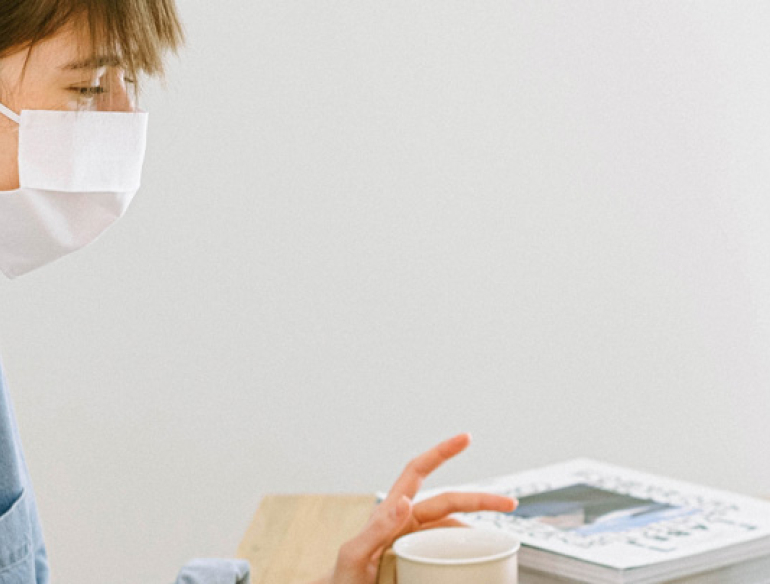Face mask use at home could be an effective strategy in curbing the transmission of COVID-19, according to new research published today in BMJ Global Health.
The research indicates that the use of face masks could reduce household transmission by up to 79%, but only if used prior to the onset of symptoms. Wearing a mask only after symptoms start did not protect. The research provides real-world evidence that supports virological studies that suggest SARS-CoV-2 is most infectious in the two days before symptoms start.
Researchers followed 460 people from 124 family households where at least one member had been diagnosed with COVID-19 in Beijing, China, about their household hygiene practices during February and March 2020 when the COVID-19 pandemic was heightening in China and around the world.
“Research shows that the majority of COVID-19 infections are acquired inside the family home,” says Professor Raina MacIntyre, who is the senior author on the paper. “We compared families which had additional cases of infection to those that did not, to see which factors were most protective.”
While global efforts focus on finding medical treatments and a vaccine to combat COVID-19, non-pharmaceutical interventions are currently the only methods available to control the spread of infection. But there is currently limited evidence to support the effectiveness of such measures.
Through following families who cohabited with a member diagnosed with COVID-19, the researchers found that face masks were 79% effective and daily household disinfection was 77% effective in preventing transmission, whilst close frequent contact (such as sitting in close proximity at meals or while watching television) increased the risk of transmission 18 times.
Whilst the authors do acknowledge some limitations – telephone interviews are subject to recall, and the concentration of disinfectants used was not recorded – the study is a cohort study and the data, particularly around face mask use, was robust, and adds to new knowledge around preventive measures specific to COVID-19.
“The findings confirm the protection offered by physical distancing of at least 1m, which was independent of household size or crowding, and provide evidence to support community face mask use, not just in public spaces, but also at home,” says Professor MacIntyre. “These findings may also be relevant for families living with someone at high risk, in quarantine or in enforced isolation, and for the families of health workers who may face an ongoing risk of infection.”
The World Health Organization currently does not recommend universal face mask use, but Professor MacIntyre says this research supports such a recommendation, particularly in the absence of a vaccine, and at a time when societies are resuming normal work and social activities.
“Distancing, daily disinfection and masks can keep infection at bay,” she says.
Header Image
Photo by Ivan Samkov from Pexels
